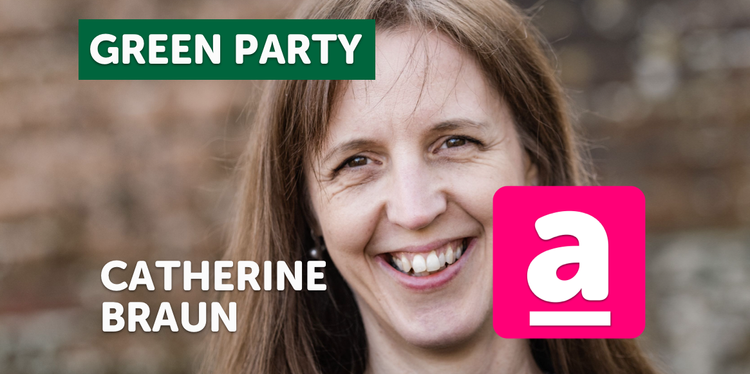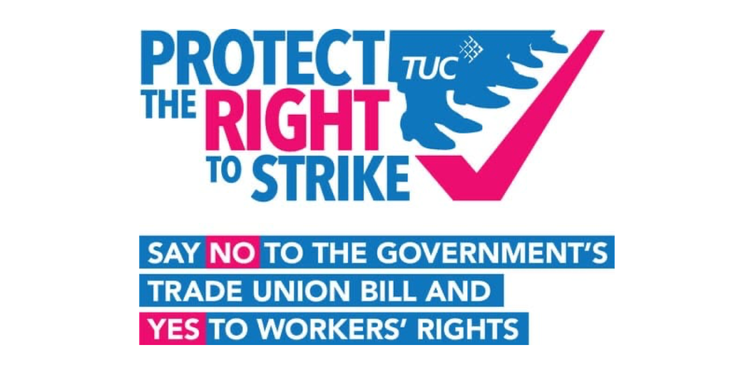Council leader blocked from MP bid by Labour leadership

Latest Top-Down Power Grab
The bureaucratic machine of the Labour Party has intervened to block Doina Cornell, popular leader of Stroud District Council, from standing to be selected as the Stroud parliamentary candidate for Labour at the next election.
Cornell, who was hoping to run as an MP at the next election, announced on Twitter that Labour officials had decided local party members would not be given the opportunity to vote for her as their parliamentary candidate.

In a subsequent tweet, she released a full statement:

Cornell is well established in the local community and has been a district councillor for ten years.
Since 2018 she has been leader of the district council, taking Stroud through the Covid pandemic at the head of a coalition of Labour, Greens, and Liberal Democrats.
As a potentially very strong and popular candidate, her exclusion from the longlist is bizarre.
Furthermore, Cornell received seven union nominations which should have guaranteed her inclusion on the longlist.
An outpouring of anger from Stroud locals, including non-party members, in reaction to the decision indicates that the Labour HQ is potentially shooting itself in the foot.

Sources within the local party have told Amplify Stroud that other candidates, popular but with politics diverging from those of the Labour leadership, also had their opportunity to be on the ballot for selection blocked.
The bizarre intervention to exclude Cornell is the latest in a wider pattern of top-down power grabs from Labour party officials riding roughshod over local democracy.
Just last month, the entire executive committee of Wakefield Constituency Labour Party resigned in protest at an attempt by Labour officials to bypass party rules and parachute in non-local candidates without giving members a say.
Speaking to Labourlist, a member of the executive, who had voted for Starmer in the leadership elections, said they felt “totally disenfranchised from the selection process”, and that the party is becoming an “enemy to local democracy”.
These moves come despite Labour Party leader Keir Starmer’s own explicit commitment to deepening democracy made whilst running to be leader.
Starmer stated that “local party members should select their own candidates in every election” to make selections ‘more democratic.’

Though members will still get to vote on the bureaucracy-selected candidates, due to the rigging of choices on the list this can hardly be framed as a deepening of democracy.
Not a Democratic Party of Government
On the back of reforms tabled earlier this year which are set to remove power from local parties in selecting the candidates that will go on the ballot, either the party’s regional or national executives gain powers to intervene and block the candidacy of well-qualified, local candidates.
This is becoming a pattern in Starmer’s Labour Party: to disempower the membership and local constituency parties whilst centralising control in the executive and the Parliamentary Labour Party, membership of which has been brought under increasing control of the leadership.
But since Labour have the ambition to be the next government, this is not just an issue of internal party politicking which is irrelevant to the wider electorate.
This country already has one of the most centralised political systems in Europe.
From Brexit and Scottish Independence to levelling up and proportional representation, calls for devolving power are an emerging zeitgeist across the political spectrum.
If Keir Starmer’s party were to win the next election, we should expect the disregard for democratic process and local decision-making extended to how they run the UK state.
The incongruity between Starmer’s election statements on deepening democracy and the bizarre control-freakery speak to a wider pattern of dishonesty from the Labour leader.
Starmer was elected by Labour Party members on a mandate to keep the many popular policies such as a Green New Deal and nationalisation of public services.
However, in the two years since winning the party leadership these commitments have been effectively dropped.
What does all this say about how Starmer’s Labour Party would run the country?
How can people be expected to support, campaign, and vote for parachute Labour candidates when the national party excludes members from yet another step of the democratic process?
How can Starmer’s Labour party be trusted to keep its word in government, when time and time again it has lied and disempowered to gain and consolidate power?
At a national level, this is a party mired in deceit, navel-gazing, and pointless politicking. Running roughshod over local communities, and in the case of Cornell being blocked from candidacy, we can see how this is costing local communities some of their most seasoned and committed leaders.




Member discussion